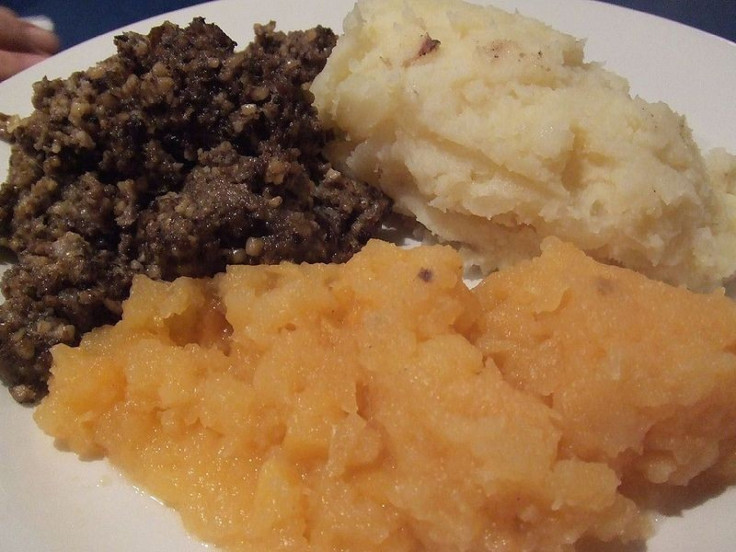English Eat Healthier Than Scots, Welsh, Northern Irish: Study

A sharp distinction has been made between the eating habits (and related health) of people living in the British Isles.
According to a study by Oxford University, residents of England have a much healthier diet than their peers in Scotland, Wales and Northern Ireland, leading to lower rates of heart disease and some cancers.
Specifically, English people scarf down more fruits and vegetable and consume less amounts of fat and salt.
Lead researcher Dr Peter Scarborough of the Health Promotion Research Group at Oxford told BBC: The chief dietary factor that is driving this mortality gap is fruit and vegetables. Consumption of fruit and vegetables in Scotland is around 12% lower than in England, and consumption in Northern Ireland is about 20 percent lower than in England. Consumption levels in Wales are similar. Other important factors are salt and saturated fat consumption, which are lower in England than in Wales, Scotland or Northern Ireland.
The authors of the study suggest that a tax on fatty and salty foods, in tandem with subsidies on fruit and vegetables, might alleviate the health discrepancy in the United Kingdom.
Indeed, according to official figures, the death rates for cancer and heart disease are appreciably higher in Scotland, Wales and Northern Ireland than in England.
In light of Denmark having recently imposed a tax on junk food and high-calorie products, Scarborough told the BBC: Junk food taxes and subsidies of fruit and [vegetables] could be a very important tool in addressing health inequalities in the UK.
Scarborough told the Daily Telegraph that he did not mean to offend the Scots or the Irish and Welsh.
We are not trying to be inflammatory at all,” he said. “It has been a question for years as to why mortality rates are higher in other parts of the UK, particularly Scotland, than they are in England. The Scottish diet is higher in saturated fat and salt and lower in fruit and vegetables.”
The study also revealed that while on average the English eat about 2300 calories daily, the caloric intake is about 100 calories in other parts of the UK.
Health officials around the UK praised the study.
A spokesperson for the Department of Health, Social Security and Public Safety in Northern Ireland: Hopefully this research helps get the message out to the general public that we have to take responsibility for our own health and that our diet has a real impact on the quality and longevity of our lives.
A government spokesperson in Wales said: Our efforts remain focused on educating people about the importance of a healthy lifestyle, such as a healthy diet, regular exercise and sensible drinking in an effort to reduce obesity and therefore the risk of heart disease, and we have a number of initiatives already in place… aimed at addressing these issues.
Victoria Taylor, senior dietician at the British Heart Foundation, told BBC: This research isn't about bragging rights to the English or tit-for-tat arguments about how healthy our traditional dishes might be. This is a useful exercise in comparing influential differences in diet across the UK, namely calorie intake and fruit and [vegetable] consumption. However, saying the rest of the UK should follow England's lead to cut heart deaths isn't a foolproof solution; a quarter of English adults are obese and only 30% eat their five-a-day.
She added: The findings have thrown up some clear inequalities in the four nations and our governments must do everything they can to create environments that help people make healthy choices.
© Copyright IBTimes 2025. All rights reserved.





















